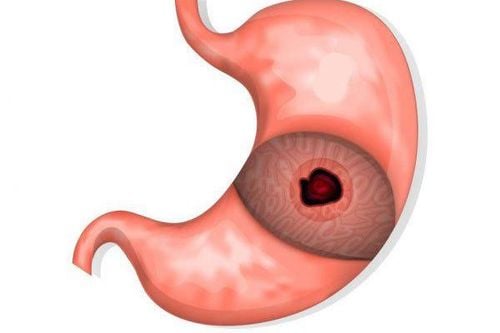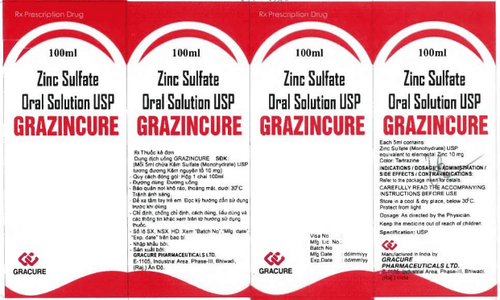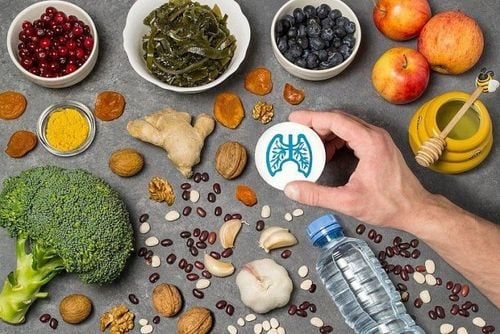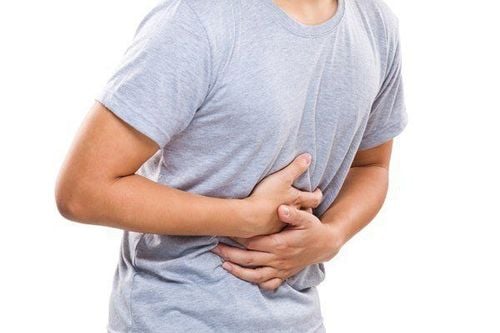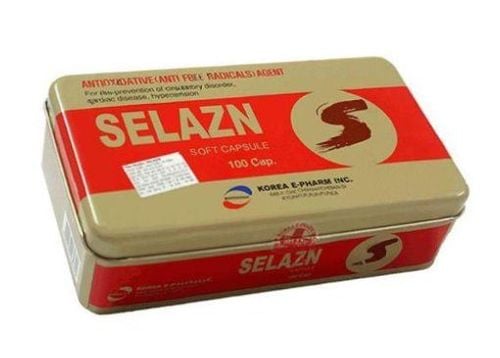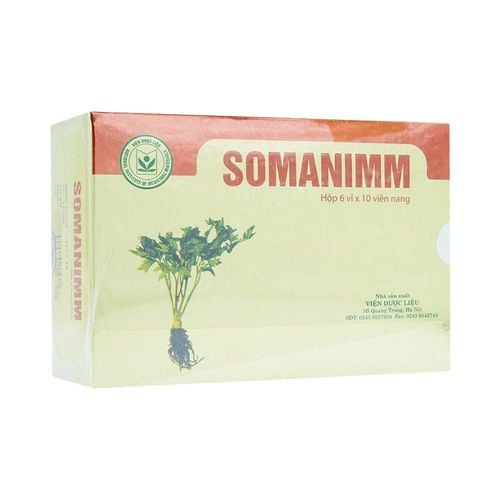This is an automatically translated article.
Entering the stage of 50 years old onwards, the body needs to be supplemented with enough vitamins and minerals for daily activities, improve the immune system, and prevent the risk of diseases from outside. So what should be supplemented at the age of 50 to enhance health? Let's answer the above question through the article below.
1. Body changes at 50 years old
From 45 to 55 years old, the body enters the middle stage and begins to have many changes in both the activity and function of the organs in the body. For women at this age there are many changes associated with menopause - this is a normal physiological change in the body, and menopause is defined when a woman has not had a period for 12 consecutive months. In postmenopausal women, the ovaries stop ovulating, stop working, and the hormones estrogen and progesterone secreted by the body become less and less.
The aging process at the age of 50 is reflected in other changes in the body such as reduced bone density, osteoporosis and easily leads to the risk of fractures. Women in this age group are 2 to 7 times more likely to break a bone than men, and this risk increases with age and menopausal status.
In middle age, people's activity is less, muscle mass decreases, affecting appetite, eating less than when young. Therefore, the diet at the age of 50 needs to be built in a reasonable and balanced way, ensuring adequate supply of necessary nutrients for the body. Proper nutrition will help the body maintain health, avoid the risk of being underweight or overweight, limit the risk of non-communicable diseases common in the elderly such as hypertension, osteoarthritis, etc. chronic obstructive pulmonary disease (COPD) ...
2. What do 50-year-olds need to supplement to strengthen their resistance?
Nutrition is always important at any age, especially when you enter middle age from 50 years old or more. So what substances should 50-year-olds supplement to be good for the body? Accordingly, some nutrients are recommended by experts in the daily diet at the age of 50 as follows:
2.1. Group of essential nutrients
- Protein: This is a nutrient that participates in the main structure of enzymes, hormones and accounts for more than 50% of the crude weight of cells. Besides, protein also provides about 30% of the body's energy for the day. On average, adults or people from 50 years old need to add about 50-60g of meat every day, 60-70kg of fish and 30g of beans...
- Fat: This is a nutrient that provides and stores energy. for the body, participates in the structure of cell membranes, helps the body better absorb fat-soluble vitamins such as vitamins A, E, D, K. The daily diet for 50-year-olds should contain 30% of the substance. fat in the total energy supply to the body. In particular, saturated fat contains less than 10% because they increase the risk of cardiovascular diseases, hyperlipidemia... Supplementing with fat for the body should choose unsaturated types (such as omega-3, omega-6) is beneficial for the heart. Foods that provide a lot of unsaturated fatty acids can be mentioned as soybeans, sesame, fish fat, corn, sunflower seeds, pumpkin seeds...
- Glucose: Provides most of the active energy for the body. the body, participates in cell structure and genetic components in the body such as glycoproteins, nucleic acids, glycolipids... This is an essential nutrient that must be supplemented at any age. They are contained in many common foods such as rice, potatoes, vermicelli, wheat...

Giải đáp tuổi 50 cần bổ sung gì?
2.2. Group of vitamins
- Vitamin D: A micronutrient that plays an important role in helping to increase the body's calcium absorption efficiency, preventing the risk of osteoporosis. If the body is not supplied with enough vitamin D, it will be susceptible to diseases such as chronic arthritis, multiple sclerosis, type 1 diabetes, cancer, autoimmune diseases... year old. Therefore, this nutrient needs to be fully replenished when you enter your 50s. According to the recommendations of nutritionists, 50-year-olds need to supplement about 20 μg or 800 IU of vitamin D per day. Most vitamin D is synthesized from sunlight, but this synthesis decreases with age. Therefore, supplementing vitamin D through daily nutrition is extremely necessary. Some foods contain a lot of vitamin D such as salmon, tuna, mackerel, egg yolk...- Vitamin B6: A nutrient that participates in the functioning of the nervous system, helps the body metabolize protein, fat. A lack of vitamin B6 in the body can easily lead to confusion, depression, and infection, especially in the elderly. Therefore, people 50 years of age and older need to supplement with 1.5 mg of vitamin B6 through their diet every day. Foods that provide many of these nutrients include grains, nuts (sesame seeds, cashews, sunflowers, peanuts, etc.), fish (salmon, tuna, and fish). fenugreek..), vegetables (peas, red bell peppers, raspberry vegetables..).
- Folate: is one of two forms of vitamin B9. This nutrient is involved in the process of creating and maintaining new cells, fighting stroke and some cancers. Therefore, folate supplementation to meet the body's needs is extremely necessary in people 50 years of age and older. Accordingly, adults or 50 years of age and older all need 400 μg of this nutrient per day. Some foods high in folate can include dark green vegetables such as spinach, asparagus, cabbage, ripe fruits such as grapefruit, bananas, strawberries, papaya...

Vitamin D là giải đáp cho thắc mắc tuổi 50 cần bổ sung gì?
2.3. Group of minerals
Besides vitamins and essential nutrients, what do 50-year-olds need to add to be healthy?
According to recommendations from nutritionists, minerals, although only in small amounts, play an extremely important role in the body, especially when the body enters the middle stage from 50 years old or more. Some minerals need to be supplemented to meet the body's needs in people 50 years old as follows:
- Potassium: A mineral that plays a very important role in almost every organ in the body, including the kidneys, heart, nervous system. and muscles. This micronutrient also plays a role in stabilizing blood pressure, preventing osteoporosis and stroke. Research from scientists shows that in postmenopausal women eating more foods rich in potassium reduces the risk of stroke. Therefore, 50-year-old people need to supplement the necessary amount of potassium for the body. The supplement of this micronutrient should be done through a reasonable, healthy diet including bananas, mustard greens, lentils, sweet potatoes... and should not be arbitrarily supplemented with potassium without prescription. According to your doctor, an overdose of potassium can cause serious side effects on the digestive system and heart, especially cardiac arrhythmias.
- Calcium: Calcium is a mineral involved in the structure of bones and teeth of the body and plays an important role in other basic functions such as nerve activity, blood vessels, muscle contraction as well as biochemical reactions. other. The main source of calcium for the body is from foods, most of this mineral is stored in the bones. Therefore, when the amount of calcium provided by the diet is not enough, the body will steal calcium from the bones and make the bones weak.
Studies show that from the age of 50 onwards, your body tends to lose more calcium than it absorbs. This is also considered the reason why the elderly, especially post-menopausal women, are prone to osteoporosis, bone loss increases the risk of fractures. According to recommendations from nutritionists, men over 70 years old and women over 50 years old need about 20% more calcium than adults. Foods containing a lot of calcium can be mentioned as cheese, milk, yogurt...
Thus, the aging process at the age of 50 causes the body's organs to have many changes in activity and function. and resistance. Adequate supplementation of nutrients, vitamins and minerals as mentioned above will help increase resistance, protect the body against the risk of diseases from outside. The addition of nutrients should be done through food, daily diet instead of drugs. A combination of proper nutrition and daily moderate exercise will help the body maintain better health.
In addition, regular health check-ups to help detect diseases early, thereby creating a treatment plan for optimal results is also very important for middle-aged people. Currently, Vinmec International General Hospital has general health checkup packages suitable for each age, gender and individual needs of customers with a reasonable price policy,
Patient's examination results will returned home. After receiving the results of the general health examination, if you detect diseases that require intensive examination and treatment, you can use services from other specialties at the Hospital with quality treatment and services. outstanding customer service.
Please dial HOTLINE for more information or register for an appointment HERE. Download MyVinmec app to make appointments faster and to manage your bookings easily.




